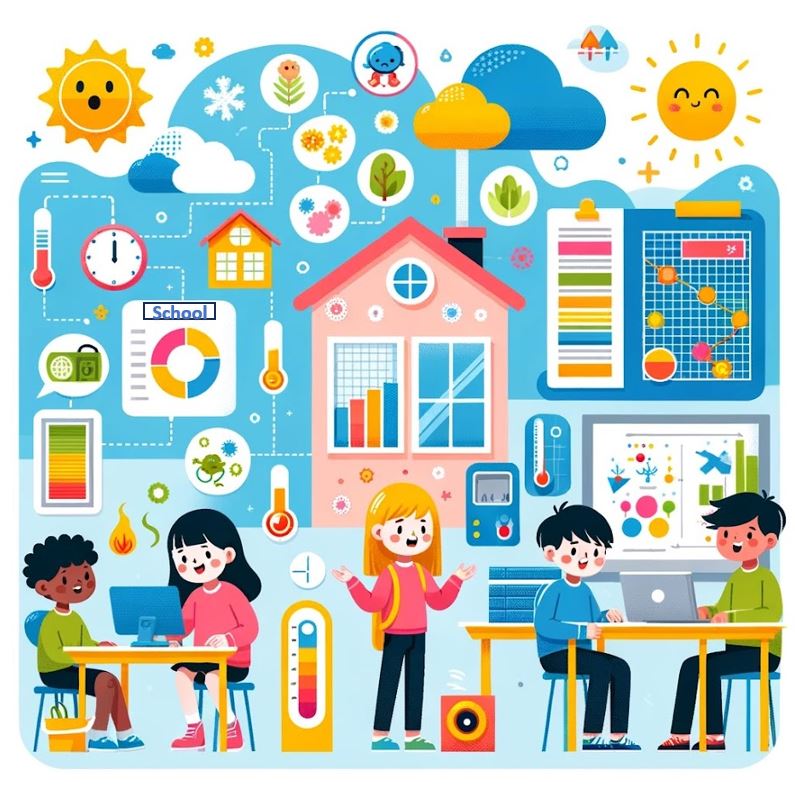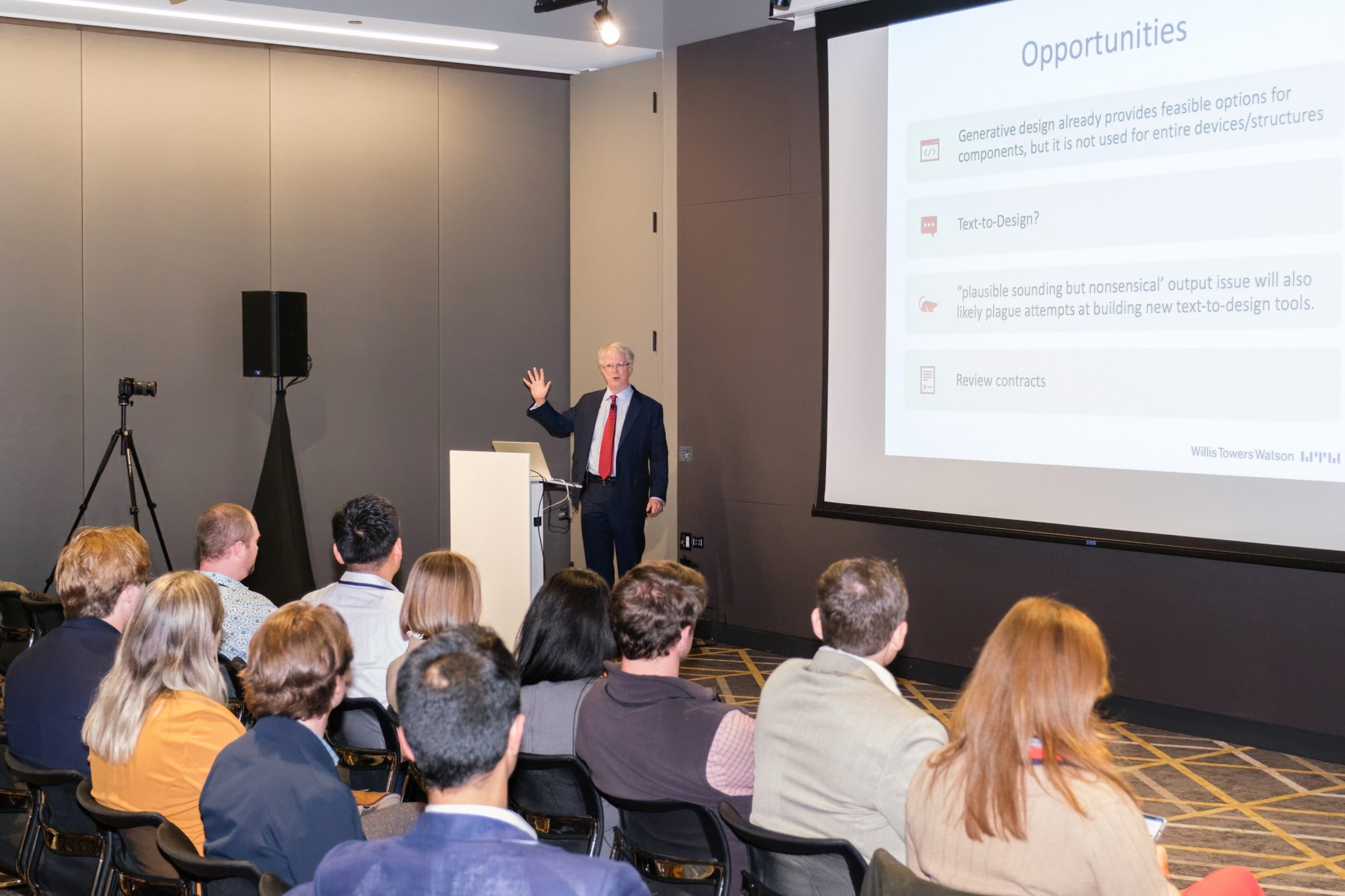What Happened in ASHRAEVegas: A Beginner’s Guide
This post is part one of What Happened in ASHRAEVegas: a series about the 2017 ASHRAE Winter Conference in Las Vegas, NV. Cyclone Energy Group is involved with ASHRAE at the local, regional, and international level, and we’ll be sharing our various perspectives throughout the series.
This was my first full ASHRAE conference, and boy, was it an experience. It seemed like there were a million things happening at once – a seminar on building automation, a committee meeting on 90.1, a paper session on optimizing energy and water efficiency, the AHR expo that was said to be 8.7 miles if walked though – and I never, ever had time for lunch.
But it was absolutely worth it. The seminars were educational and applicable to my energy modeling and analysis work, the technical committee meetings provided insight on the standards that I work with on a daily basis, and I was able to meet so many smart, fun, fellow engineers who are passionate about this field of work.
Now that I have my first ASHRAE conference under my belt, I wanted to share some takeaways for other first-timers:
Tip #1: Know what you’re getting yourself into.
An ASHRAE conference actually has two separate agendas going on at once. First, you have the typical conference activities that require registration. This includes seminars, paper sessions, forums, and other educational sessions; the AHR Expo (winter conference only); and social events such as the Welcome Party and Members Night Out. This is the portion you’re paying for.
Second, you have the “Business of ASHRAE” side that is open to everyone (no fees), and this side includes grassroots committee meetings, technical committee meetings, and research project meetings. This is the portion where groups of volunteers come together to decide on the content of the next handbook or standard, as well as high-level topics such as society finances.
Tip #2: Talk to your coworkers and friends.
If you have coworkers or colleagues who are involved with ASHRAE or have gone to ASHRAE conferences, ask them for advice. They may be able to tell you which types of sessions would be most beneficial for your specific line of work, or which technical committee meetings you should check out based on your personal interests. Even ask around with people you meet at the conference!
I found that I learned more of what to expect from these conversations than from the descriptions online, especially for technical committees.

Tip #3: The program guide is your new best friend.
I did everything people told me to do: I signed up for the Personal Scheduler, downloaded the ASHRAE app,  took note of which sessions I wanted to attend, etc. But, the program guide. Once I had that in my hands, nothing else mattered.
took note of which sessions I wanted to attend, etc. But, the program guide. Once I had that in my hands, nothing else mattered.
Don’t get me wrong. The Personal Scheduler was useful for getting an idea of which sessions I intended on going to, and the ASHRAE app allowed me to visualize everything in a calendar format. But the program guide was better organized so I could see which sessions were part of which track and whether they were “basic” or “advanced,” how many times each technical committee met and when, what subcommittees were part of each technical committee, and how to locate each session or event with the inclusion of a map.
Tip #4: It’s okay to play the field.
… in regards to Technical Groups. There are a good number of them – Technical Committees (TC), subcommittees, Standing Standard Project Committees (SSPC), Task Groups (TG), etc – and you don’t have to commit to one just yet.
First things first: what are they? Technical Groups are groups of volunteers that provide expertise on a specific field or subject. Specifically, TCs are responsible for handbook chapters, research projects, and conference  program development; subcommittees make up TCs and most of the work occurs in these meetings; SSPCs maintain standards; and much more. These groups are a great way to get involved with ASHRAE, share knowledge, and/or help shape the standards that impact our work. But how do you choose one? Here are some things I learned:
program development; subcommittees make up TCs and most of the work occurs in these meetings; SSPCs maintain standards; and much more. These groups are a great way to get involved with ASHRAE, share knowledge, and/or help shape the standards that impact our work. But how do you choose one? Here are some things I learned:
- Browse through ASHRAE’s TC website.
- Check out their agendas online.
- TCs are a great place to start because SSPCs/TGs typically already report to TCs.
- Consult coworkers or colleagues.
- Just try them out. See if you like them! They all work slightly differently and have different atmospheres.
But don’t overdo it. You don’t want to skip out on too many educational seminars to attend these meetings. Sometimes, your favorite seminars may be sponsored by certain TCs and that will tell you where to go. And a big question I had: How do you conduct yourself as a newcomer to these meetings?
- Introduce yourself (usually they make you).
- You can just watch and listen, or my advice: don’t be afraid to speak up and chat with people before/after the meeting.
- You can speak up, but you cannot vote. Only members can vote.
- Know it’s normal to not know what’s going on for a few meetings.
- If you’re interested, ask how to get involved!
Tip #5: Bring plenty of business cards…and extra shoes.
I found the social events to be just as important as the seminars and the technical committees. These events are  where you meet others in your field, get advice, share ideas, and get inspired. Don’t forget to bring a huge stack of business cards though – they go fast.
where you meet others in your field, get advice, share ideas, and get inspired. Don’t forget to bring a huge stack of business cards though – they go fast.
There are so many social events, but these were my favorite:
- Region dinner: sign up for your region’s dinner online or near the registration booth
- Women in ASHRAE breakfast (sells out quickly! This one is free!)
- Young Engineers of ASHRAE (YEA) Hospitality event (free too)
- Vendor events: fun parties sponsored by vendors (hint: you can apparently hear about them at the AHR expo)
- Top Golf: this one was just a group of friends in ASHRAE, and I was dragged along even though I was exhausted. But I met some great people and finally learned how to golf!
So get out there and mingle. And by the end of the day, you’re going to wish you had extra shoes to change into. Walking and standing all day in the same shoes for three days straight? Not fun.
Walking and standing all day in the same shoes for three days straight? Not fun.
Tip #6: Take advantage of the locale.
This is more of a personal opinion, but I would encourage you to spend some time exploring the area. You traveled all the way here! Why not?!
There are usually guided tours of the city or places of interest during the conference, but I find that there’s way too much going on to leave. So schedule in some sightseeing before or after the conference. In this case, my boyfriend and I drove from Los Angeles to Las Vegas before the conference and went hiking near Red Rock Canyon.

If you still have questions, make sure to go to the “Crash Course” seminar that’s usually scheduled near the start of the conference, or go to your local chapter monthly meeting and ask around! Hope to see you at the next one!



